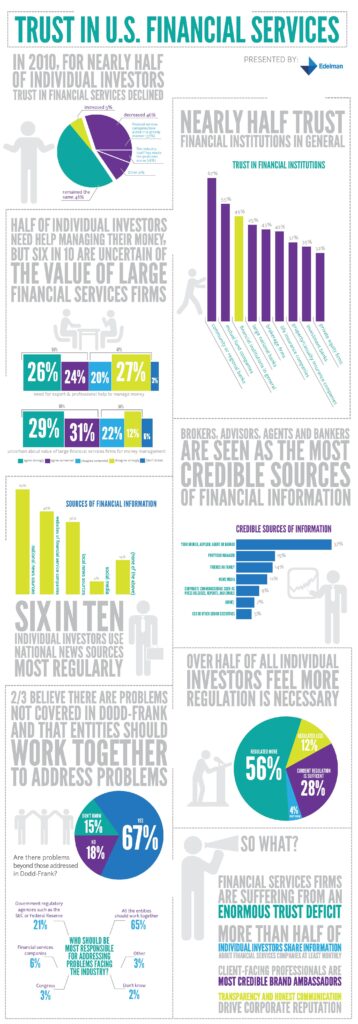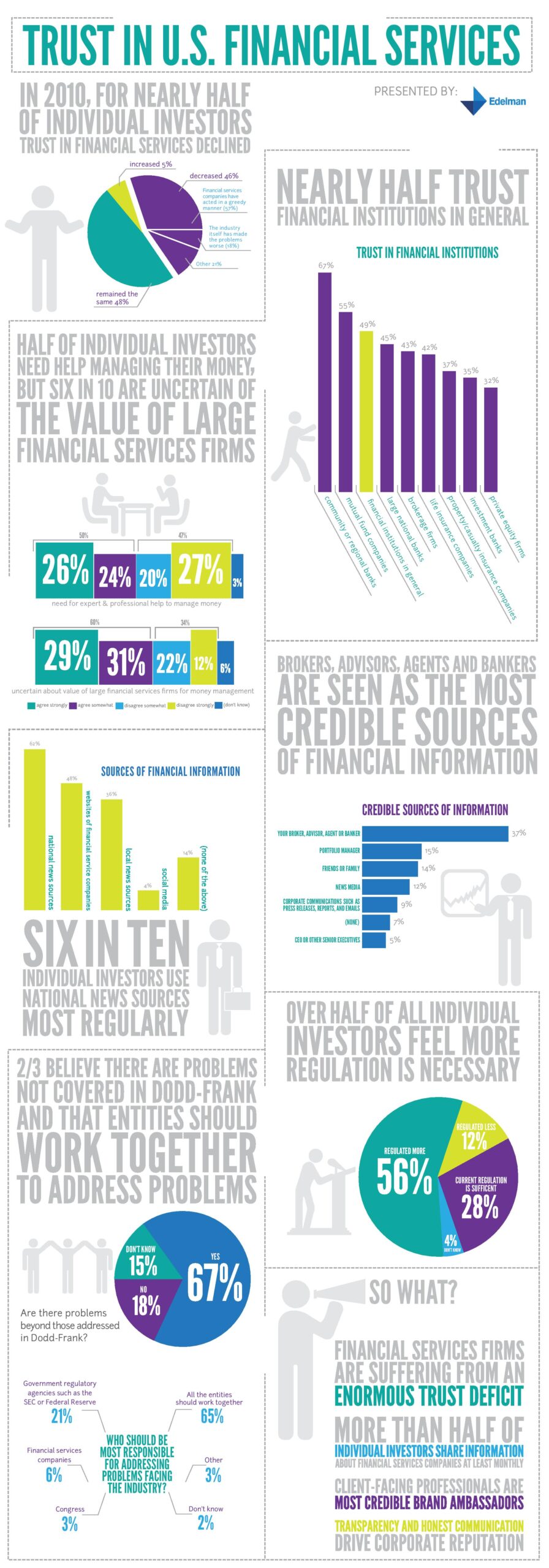Advisors in the Mainstream (Infographic and Excerpt)

4 min Read
I browse the internet a lot less than you probably think I do, but somehow I managed to come across two advisor-relative pieces of content without even looking for them. This is a rare and frankly quite bizarre occurrence given my internet tendencies, so their relevance to you should be twofold. One, that practical financial advice is, according to the powers that be, worth thinking about, and two, that financial advice makes it into the media that young people read (because I am the appointed representative of all young people. Go ahead, ask one).
The first piece is an awesome infographic from Edelman Digital called Trust in US Financial Services. Edelman is a company based out of San Francisco known for their research and data collection/interpretation/visualization talents. Many of the biggest brands in the world use Edelman, and my friend happens to work for them. I check their feed(s) somewhat regularly to see what they’ve been data-visualizing, and found this one while I was poking around. What it says to me is, “looks like advisors still have a job, and it’s because of their people skills,” which we’ve talked about aplenty on this blog:
The second piece is an excerpt from a post called How To Put Your Money To Work For You, Beyond The Basics, from one of my favorite blogs, Lifehacker. This is pretty awesome for financial advisors, because Lifehacker is a DIY blog (DIY meaning Do It Yourself), and if they’re recommending seeking professional services, that means that all the Robo-Advisors and internet-learning in the world can’t replace a real person (you). That’s big:
Option 3: Hire a Financial Planner and Sail for Risky Waters
Sometimes you have to spend money to make money, but a good financial planner can help you make smart decisions about other, more advanced options. Sure, a financial planner can help you make the smart saving decisions we’ve discussed up to this point, but that kind of advice is free—what you really want a financial planner or accountant’s advice with are the tricky investment options, like these:
- Buy/remodel an investment property: Many people buy a condo or vacation home just for a little rental income, but if you’re not sure where to start, get help before you go shopping. The market is much different now than when this was more popular, and your mileage will vary depending on where you live and what you plan to do.
- Start a private portfolio: Mutual funds offered by your 401(k) are one thing, but if you want to get into index funds, options, or even just start buying up stock in well-performing companies that you want to invest in, you’ll need some assistance. By all means, go for it—just don’t neglect your research.
- Consider annuities: The folks at The Motley Fool suggest annuities, despite their cost and limited insurance coverage, are an option worth considering if you’ve already started investing elsewhere. They can be difficult to cash out of, but they can yield decent returns if you find a good one. The key, of course, is finding a good one, and The Motley Fool has some tips on how to do that.
- Buy an investment vehicle: Depending on your age and the amount of risk you’re willing to take, you can stash your extra money away in government bonds (low risk, low reward) or stock options and futures (high risk, high reward.) It’s especially important to get a professional’s help before wading into these waters: there are plenty of vehicles that do little more than fleece unsuspecting customers, so do your research and get help before writing any checks.


